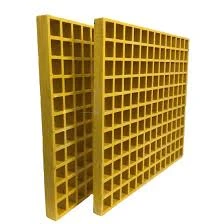
-
 Afrikaans
Afrikaans -
 Albanian
Albanian -
 Amharic
Amharic -
 Arabic
Arabic -
 Armenian
Armenian -
 Azerbaijani
Azerbaijani -
 Basque
Basque -
 Belarusian
Belarusian -
 Bengali
Bengali -
 Bosnian
Bosnian -
 Bulgarian
Bulgarian -
 Catalan
Catalan -
 Cebuano
Cebuano -
 China
China -
 China (Taiwan)
China (Taiwan) -
 Corsican
Corsican -
 Croatian
Croatian -
 Czech
Czech -
 Danish
Danish -
 Dutch
Dutch -
 English
English -
 Esperanto
Esperanto -
 Estonian
Estonian -
 Finnish
Finnish -
 French
French -
 Frisian
Frisian -
 Galician
Galician -
 Georgian
Georgian -
 German
German -
 Greek
Greek -
 Gujarati
Gujarati -
 Haitian Creole
Haitian Creole -
 hausa
hausa -
 hawaiian
hawaiian -
 Hebrew
Hebrew -
 Hindi
Hindi -
 Miao
Miao -
 Hungarian
Hungarian -
 Icelandic
Icelandic -
 igbo
igbo -
 Indonesian
Indonesian -
 irish
irish -
 Italian
Italian -
 Japanese
Japanese -
 Javanese
Javanese -
 Kannada
Kannada -
 kazakh
kazakh -
 Khmer
Khmer -
 Rwandese
Rwandese -
 Korean
Korean -
 Kurdish
Kurdish -
 Kyrgyz
Kyrgyz -
 Lao
Lao -
 Latin
Latin -
 Latvian
Latvian -
 Lithuanian
Lithuanian -
 Luxembourgish
Luxembourgish -
 Macedonian
Macedonian -
 Malgashi
Malgashi -
 Malay
Malay -
 Malayalam
Malayalam -
 Maltese
Maltese -
 Maori
Maori -
 Marathi
Marathi -
 Mongolian
Mongolian -
 Myanmar
Myanmar -
 Nepali
Nepali -
 Norwegian
Norwegian -
 Norwegian
Norwegian -
 Occitan
Occitan -
 Pashto
Pashto -
 Persian
Persian -
 Polish
Polish -
 Portuguese
Portuguese -
 Punjabi
Punjabi -
 Romanian
Romanian -
 Russian
Russian -
 Samoan
Samoan -
 Scottish Gaelic
Scottish Gaelic -
 Serbian
Serbian -
 Sesotho
Sesotho -
 Shona
Shona -
 Sindhi
Sindhi -
 Sinhala
Sinhala -
 Slovak
Slovak -
 Slovenian
Slovenian -
 Somali
Somali -
 Spanish
Spanish -
 Sundanese
Sundanese -
 Swahili
Swahili -
 Swedish
Swedish -
 Tagalog
Tagalog -
 Tajik
Tajik -
 Tamil
Tamil -
 Tatar
Tatar -
 Telugu
Telugu -
 Thai
Thai -
 Turkish
Turkish -
 Turkmen
Turkmen -
 Ukrainian
Ukrainian -
 Urdu
Urdu -
 Uighur
Uighur -
 Uzbek
Uzbek -
 Vietnamese
Vietnamese -
 Welsh
Welsh -
 Bantu
Bantu -
 Yiddish
Yiddish -
 Yoruba
Yoruba -
 Zulu
Zulu
Fiberglass Ducts Show Superior Durability and Resistance to Harsh Environmental Conditions
The Exceptional Resistance of Fiberglass Ducts Against Corrosion and Environmental Factors
In the realm of HVAC systems, the selection of duct material plays a pivotal role in determining the efficiency, longevity, and overall performance of the system. Among the various materials available, fiberglass ducts have emerged as a frontrunner due to their exceptional resistance against corrosion and a host of environmental factors. This article explores the advantages of fiberglass ducts, including their resistance to corrosion, moisture, and other challenges typically faced in ductwork applications.
Corrosion Resistance
One of the primary attributes of fiberglass ducts is their remarkable resistance to corrosion. Traditional duct materials such as metal and plastic are often susceptible to chemical reactions that can lead to rust, deterioration, and ultimately failures over time. Fiberglass, on the other hand, is composed of a composite material that resists the corrosive effects of many substances including acids, bases, and salts. This quality is particularly beneficial in industrial settings, where the air may be laden with corrosive agents that can wreak havoc on standard duct systems. By utilizing fiberglass ducts, facilities can significantly reduce maintenance costs and extend the lifespan of their HVAC systems.
Moisture Resistance
Another significant advantage of fiberglass ducts is their ability to withstand high levels of moisture without succumbing to mold or mildew growth. Metal ducts can trap moisture, leading to condensation issues that foster the development of harmful microorganisms. In contrast, fiberglass materials are designed to be inherently resistant to such moisture-related problems. This characteristic makes fiberglass an ideal choice for environments with high humidity, such as hospitals, swimming pools, and food processing facilities, where air quality and hygiene are of utmost importance. Choosing fiberglass ducts helps ensure a cleaner, healthier indoor environment while mitigating the risks associated with dampness.
Thermal Insulation Properties
fiberglass ducts demonstrate exceptional resistance against ...

Fiberglass ducts also boast excellent thermal insulation properties. The material is naturally insulating, which helps to minimize energy loss in heating and cooling systems. As a result, buildings equipped with fiberglass ducts can maintain consistent temperatures while reducing energy consumption. This aspect is particularly valuable for energy efficiency initiatives and can lead to significant reductions in operational costs. Furthermore, maintaining stable indoor temperatures contributes to occupant comfort, an essential factor in residential and commercial spaces alike.
Lightweight and Easy to Install
The lightweight nature of fiberglass ducts is another advantage that enhances their practicality. They are easier to handle and install compared to heavier metal ductwork, resulting in a decrease in labor costs and installation time. Moreover, the flexibility of fiberglass allows for custom configurations, facilitating efficient routing through complex building spaces. This adaptability not only streamlines the installation process but also optimizes the overall layout of the ductwork, providing better airflow and system performance.
Economic Advantages
While the initial investment in fiberglass duct systems may be higher than traditional alternatives, the long-term economic benefits are undeniable. The durability, low maintenance requirements, and energy efficiency of fiberglass ducts contribute to long-term cost savings. Organizations can avoid frequent repairs and replacements associated with conventional duct systems, all while enjoying lower energy bills due to improved performance. Additionally, the reduced risk of contamination and the healthier indoor air quality contribute to a more productive and pleasant environment for occupants.
Conclusion
In conclusion, fiberglass ducts represent a superior alternative in the HVAC industry, thanks to their exceptional resistance to corrosion and environmental challenges. Their ability to withstand moisture, provide excellent thermal insulation, and facilitate easier installation makes them a smart choice for any heating and cooling system. As both residential and commercial sectors continue to prioritize efficiency and sustainability, fiberglass ducts are poised to play a crucial role in the future of ductwork solutions. Investing in fiberglass ducts not only promises enhanced performance but also a commitment to a healthier, more durable built environment.









